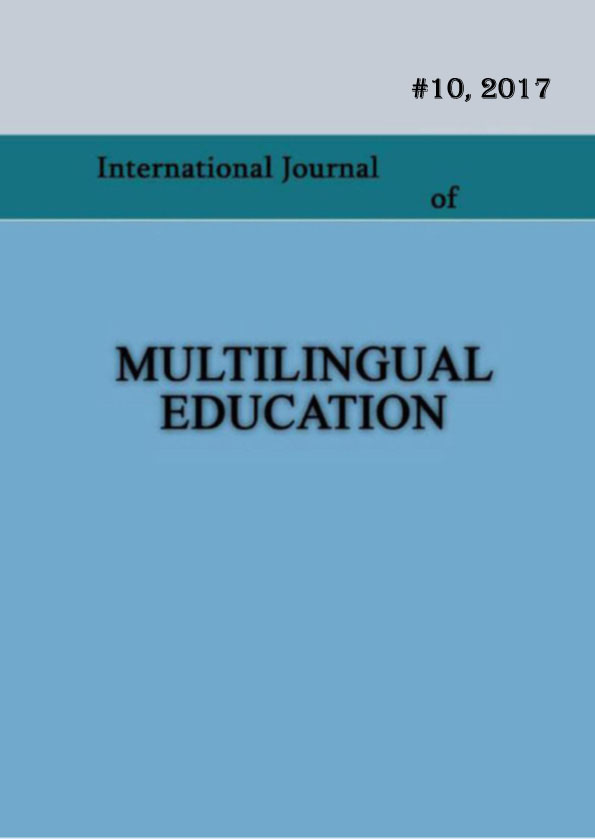Batumi Linguocultural Digital Archive
Keywords:
web technologies; Linguoculturalizm; Digital Archieve.Abstract
The evolution of the new forms of the scientific communication and development of the web technologies and global networking gave the scholars an excellent opportunity to rapidly and effectively use academic digital resources, the number of which is constantly increasing. Establishment of the OR (Open-Resource) and introduction of the RE (Resource Exchange) supported development of the infrastructure for the digital archives. That, in its own right, became a fast and efficient instrument for the use of scholarly resources. It has essentially changed the research procedures in the 21st century. The researchers now are able to make use of the ‘open and merge’ approach to their resources. Creation of the global library has become a new opportunity of the international scholarly communication.
The joint scientific project Batumi Linguocultural Digital Archieve (BaLDAR) implemented jointly by Batumi Shota Rustaveli State University and Goethe Frankfurt University is sponsored by the Shota Rustaveli National Science Foundation. The project is a result of the international cooperation and aims to introduce new forms of the scientific communication, which will support multidisciplinary research development.
The paper studies the significance of the establishment digital archives in Georgia. It outlines the themes of the resources that have been developed within the project framework.
References
Gippert, Himmelmann, Mosel, 2006: Jost Gippert, Nikolaus P. Himmelmann, Ulrike Mosel (eds.), "Essentials of Language Documentation", Mouton - de Gruyter, 2006.
Putkaradze 1993: Shushana Putkaradze, “Chveneburebis Q’artuli”, Adjara Magazine Media Publishers, Batumi, 1993.
Hockey, 2000: Susan Hockey, "Towards a Model for Web-based Language Documentation and Description: Some Contributions from Digital Libraries and Humanities Computing Research", 2000.
(http://www.ldc.upenn.edu/exploration/expl2000/papers/hockey/hockey.htm).
Shashikadze & Makharadze, 2017: Zaza Shashikadze & Mirian Makharadze (ed.), “Spiritual and
Material Heritage of Georgian Muslims in Turqey (Artvin)”, Publishing House "Orient", Tbilisi, 2017.
Simons & Bird, 2000: Gary Simons and Steven Bird, „The Seven Pillars of Open Language Archiving: A Vision Statement“, 2000. (http://www.language-archives.org/ documents/vision.html).
Tandaschwili, 2018: Manana Tandaschwili, “What causes the endangerment of languages? The Case of the Udi Language in Georgia”, International Journal of Diachronic Linguistics and Linguistic Reconstruction 15, 2018 ( in print).
Downloads
Published
How to Cite
Issue
Section
License
Copyright (c) 2017 Manana Tandaschwili, Ramaz Khalvashi, Khatuna Beridze, Manana Khakhutaishvili, Nino Tsetskhladze

This work is licensed under a Creative Commons Attribution-NonCommercial 4.0 International License.
Copyright (c) - Authors who publish with this journal agree to the following terms: Authors retain copyright and grant the journal the right of first publication with the work simultaneously licensed under a Creative Commons Attribution-Noncommercial 4.0 International License, which allows others to share the work with an acknowledgement of the work's authorship and initial publication in this journal. Authors are permitted and encouraged to post their work online (e.g., in institutional repositories or on their personal website) prior to and during the submission process, as it can lead to productive exchanges, as well as earlier and greater citation of published work (see The Effect of Open Access). Authors may enter into separate, additional contractual arrangements for the non-exclusive distribution of the journal's published version of the work (e.g., post it to a repository or publish it in a book), with an acknowledgement of its initial publication in this journal.

